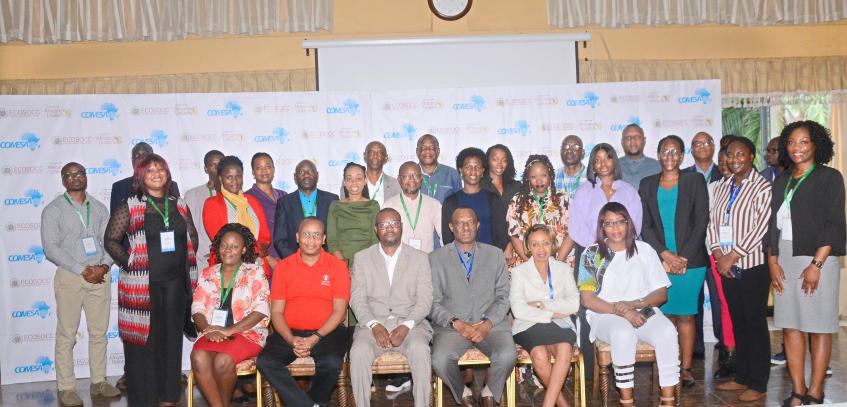An impactful regional training is being held in Entebbe for Civil Society Organizations (CSOs) from the Eastern region of Africa on ‘Leveraging Civil Society Networks to Support Conflict Prevention including the African Union Country Structural Vulnerability and Resilience Assessments (AU CSVRA) and the COMESA Conflict Early Warning System Structural Vulnerability Assessments (COMWARN SVA),’ to equip CSOs with the expertise needed to play an active role in conflict prevention.
The September 14-16 training, hosted by the African Union Economic, Social and Cultural Council (ECOSOCC) in collaboration with the Common Market for Eastern and Southern Africa (COMESA) to bolster peace, security and stability is supported by the European Union, through its Fourth Support Programme to the African Peace and Security Architecture (EU APSA IV).
The training signifies substantial strides in promoting peace and security across the continent. The training will empower participants with essential skills, enabling them not only to implement the Structural Vulnerability Assessment (SVA) process within their countries, but also to effectively communicate the critical concepts to local governments and policymakers. The capacity-building has the potential to greatly enhance conflict prevention efforts and community resilience.
Mr. William Carew, Head of ECOSOCC Secretariat, emphasized the significance of the training in empowering CSOs from the East African region. He highlighted the unique context of the training within the framework of Africa Amnesty Month (AAM), a designated month for the surrender and collection of illegally owned weapons.
He further underlined the series of activities organised by ECOSOCC and the partnership with COMESA in building the capacities of African CSOs, aligning it with the AU's focus on the crucial role of CSOs in advancing peace, security, and stability in Africa.
“The training aims to enhance CSOs' understanding of the SVA methodology, bolster their capabilities in conducting SVAs, promote the methodology within the region, strengthen collaboration and networking among CSOs, and establish a network of CSOs data collectors in East Africa. This is critical to contributing to improved conflict prevention efforts and peacebuilding in the region,” said Mr. Carew.
Dr. Jonathan Sandy, Chairperson of the ECOSOCC Peace and Security Cluster, emphasised the significance of the training in enhancing the capacities of Civil Society Organizations (CSOs) in East Africa on the AU’s and COMESA's Conflict Prevention tools. He contextualised the training within the commemoration of Africa Amnesty Month (AAM) and the broader efforts to silence the guns on the continent.
He highlighted CSOs' crucial role in conflict prevention, drawing lessons from the ECOWAS region's ECOWARN system. Dr. Sandy also stressed the need for strengthened collaboration between COMESA's Conflict Early Warning System (COMWARN) and the Continental Early Warning System (CEWS), particularly through the joint SVA consultations and capacity-building initiatives.
Ms. Elizabeth Mutunga, Head of Governance, Peace, and Security (GPS) at COMESA, highlighted the complex challenges faced by the continent, including governance issues that threaten its prosperity, noting that despite collective efforts and existing frameworks, managing conflicts remained costly, prompting renewed attention to addressing their root causes.
Ms. Mutunga shed light on the directive for COMESA to establish structured engagement with CSOs, which commenced with a robust process that accredited over 30 CSO networks from 16-member states of COMESA, stressing the crucial role of CSOs in conflict prevention, management, and resolution, particularly at the grassroots level, given their deep understanding of local dynamics.
She commended ECOSOCC for empowering CSOs in peacebuilding and emphasised the importance of collaborations with other regional bodies and partners to optimise resources.
The collaborative training represents a significant step towards peace and stability in the region and underscores the pivotal role of CSOs in conflict prevention and resolution. The initiative not only equips CSOs with essential skills but also fosters collaboration, networking, and the sharing of best practices among CSOs in the region.





